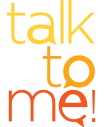‘Can’ and ‘Could’ are modal verbs. A modal verb is a type of verb that indicates MODE or MANNER. They are NOT main verbs. They are ‘helping verbs.’
The modal verbs ‘can’ and ‘could’ show possibility and impossibility, ability, permission, requests, offers and suggestions.
Examples:
POSSIBILITY: They COULD come by train. This means: Maybe they will come by car.
That CAN’T be true!
CAN’T is a contraction of ‘CANNOT.’
ABILITY: She can speak English really well.
PERMISSION: Can we go home now?
REQUEST: Can you take a message, please?
Could you take a message, please? (Polite)
OFFER: Can I help you?
SUGGESTION: We could meet at the weekend.
Please fill in the blanks with ‘can,’ ‘cannot’ or ‘could.’
1. Vandana is ill. She ___ come tomorrow.
2. Kapil ___ swim like a fish.
3. I’m tired. ____ we go home, please?
4. ___I borrow your pen? ( polite)
5. They ___ dance very well.
6. On public holidays students ___travel free on the bus.
7. The work is not done! You ___ go home just yet.
8. Help! I ____ breathe.
9. When I wear a mask I ___ breathe more easily.
10. I ___ see very well in the dark.
11. You will have to accompany me. I ___ play the guitar.
12. Maybe I ____ help her.
13. The movie is so sad. I ____ stop crying.
14. ___ you spell your name, please? ( polite)
15. ___ you take a picture of us, please? ( polite)
16. You ___ learn many things from books.
17. Our work is done. We ___ relax now.
18. I’m sorry you ___ stay.
19. No one ___hear you, Swati. Please speak a little louder.
20. Please wait for me. I ___ find my keys.
